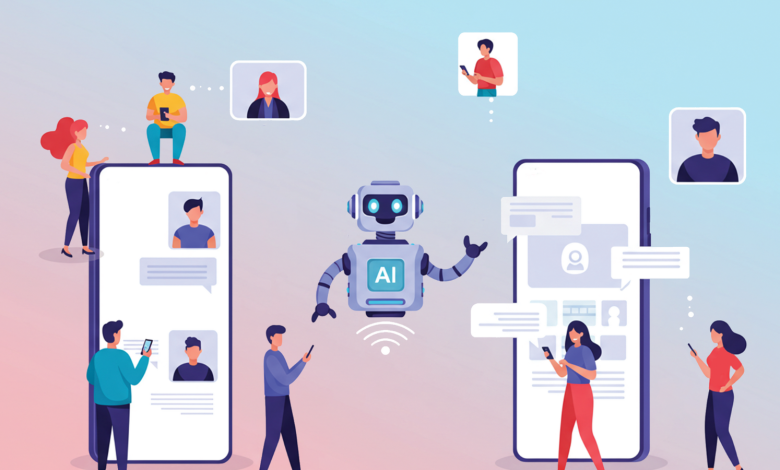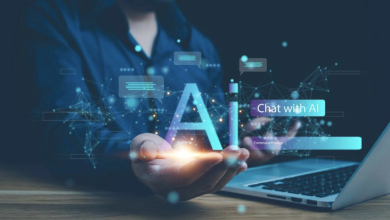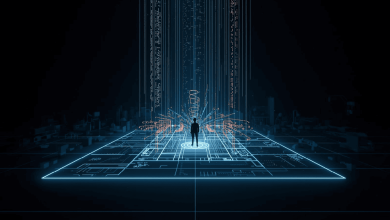
With AI, we have access to practically infinite knowledge, but for it to make a worthwhile impact it is vital that we rethink collectivism and collaboration, writes Joseph Cooper of Nullshot
The AI revolution has completely changed how we do things. From writing assistants, content creation, and workflow management or booking and execution agents, the technology has made us faster, sharper and sometimes more creative, but still, most AI tools are built to serve one user at a time. In this way, they completely transform individual productivity but risk overlooking the long-proven benefits of collaboration and co-creation at every step.
Every community and idea evolves through collaboration. Yet no one has really cracked how to make AI truly social or ensure that everyone who contributes to a project owns a piece of it. The biggest breakthroughs still come from people working side by side, combining skills to build something none of them could have made alone. That’s the kind of partnership these tools should create: one that brings us closer, not further apart.
In short, if we want AI to transform how we work, learn, and create, we need to shift our focus from the individual to the collective, working on platforms and systems that truly enable teams, communities, freelancers, students, and innovators to collaborate with AI as a fully credited, wholly collaborative ecosystem of contributors. AI is a tool for the many, it’s time we start to use it that way.
Shared Spaces, Shared Values, Shared Rewards
Imagine chatting with a colleague or collaborator about an idea and then using AI to actually bring it to life. That’s what collaboration should look like — people and machines building things together in real time.The future of AI shouldn’t isolate us, it should empower us to connect, create, collaborate and share credit like never before.
But let’s be clear, this isn’t about digital communes where people are expected to collaborate for the ‘greater good’. We’re talking about the future of business. A more collaborative environment for AI will equally need to have a strong framework for authorship, ownership, and benefits for all who contribute to a project. It is what I call “the contribution contract”: a set of shared rules that determine who gets credit, who gets remunerated, and how we define value when machines are part of the creative process.
The rise of AI Agents has simply led people to believe that AI is a personal – rather than social – technology. We’re still living in a mindset which assumes one creator, one AI platform, one product, one payout. The problem is, that model doesn’t fit a world where code, creativity, and contribution are shared. In this world where apps and ideas can come into existence in an instant, business models of subscriptions and services are questionable. It’s time to challenge that.
From No Code to No Limits
While no-code AI tools have opened up opportunities for millions of people who could never have built software before, there’s a ceiling to what they come up with by themselves. Most of these tools still rely on one person sitting alone, typing prompts into a box and trying to bring an idea to life. It means that users can make what they imagine, but not necessarily what a team, community, or group of individuals could imagine together. Embracing that difference, and the potential for a new kind of collaboration, is critical. The internet’s greatest success stories – from Wikipedia to DeepSeek – weren’t born in isolation. They emerged from collective curiosity and contribution.
Our view is that the next leap for AI won’t come from better interfaces, it will come from better collaboration models where the agents truly understand the context and intention of the contributors and contribution incentives are fairly aligned. We need spaces where ideas evolve socially, where AI acts as both participant and facilitator, and where ownership reflects the network of minds and machines that bring something to life together.
Collaborating with AI and Each Other
In every sector, from gaming to fintech to climate tech, the same pattern is emerging: teams are using AI to accelerate workflows, but the real innovation comes when AI becomes part of the conversation, not just the toolchain.
We’ve seen amazing open-source projects like Kubernetes powering huge parts of the internet — but who actually owns that? Who gets paid when companies make millions off that work? That’s the kind of question tokenization can help answer. It’s a big shift from the industrial model, where we divided labor to increase output. In an AI economy, the challenge will be how to divide credit so that creativity remains worth pursuing. If the industrial age was about dividing labor, the AI age must be about distributing credit while ensuring that collaboration and contribution can reach new and unimaginable levels of speed, sale, and security.
Where we go next
While no-code tools have opened access to technology like never before, we’re still thinking about AI through the lens of personal productivity: one user, one idea, one output. But that’s the wrong paradigm. The Industrial Revolution didn’t just make individuals more efficient, it redefined how societies organized labor, ownership, and value. AI is doing the same today, only faster, and on a far larger scale. And if we don’t update our social frameworks and business models to match that speed and reach, we risk repeating history’s early mistakes: innovation without inclusion, creativity without collaboration, growth without fair rewards.
AI is moving so fast it can be hard to keep up. I often recommend people to spend five hours a week trying something new – a new model or a new tool. The future won’t be built by AI alone, but by the people who decide to learn and build with it. When credit and transparency are ingrained in the systems, contributions and interactions can be rewarded in kind. The future won’t be built by AI alone. It will be built through collaboration between people and the systems they create. The sooner we rethink our individualistic approach to AI, the even greater potential we’ll unlock in the process.
About Joseph Cooper
Joseph “Coop” Cooper is the co-founder of Nullshot, a collaborative platform for turning chats into apps. With over 20 years of experience in digital innovation and decentralized platform development, Coop is focused on building tech that empowers human creativity rather than replacing it. Prior to Nullshot, Coop launched KintoHub, a platform simplifying cloud native app development, and Earn Alliance, a Web3 platform for discovering and engaging in blockchain-based games.
About Nullshot
Launched in October 2025, Nullshot is an AI platform for collaborators to co-create projects at scale. Evolving from Avalaunch, Nullshot combines AI creation tools with social collaboration features, including live Jams where communities can brainstorm, build, and launch AI Agents, tools, and applications together in real-time. Designed for creators, entrepreneurs, and developers of all skill levels, Nullshot turns collective ideas into tokenized products powered by omni-chain liquidity, enabling anyone to participate in the AI economy and earn from their work. By merging intuitive co-creation, community, and monetization, Nullshot redefines how people build together in the new era of intelligent, decentralized innovation.




